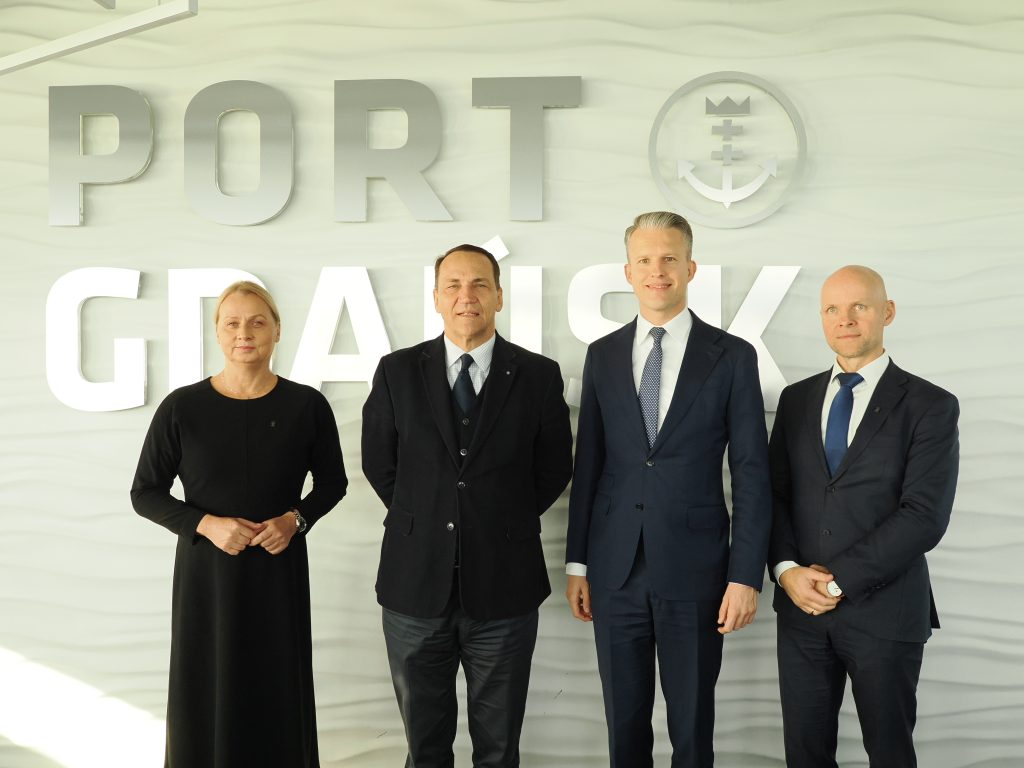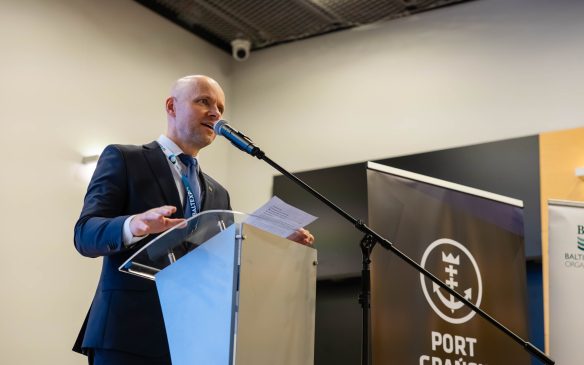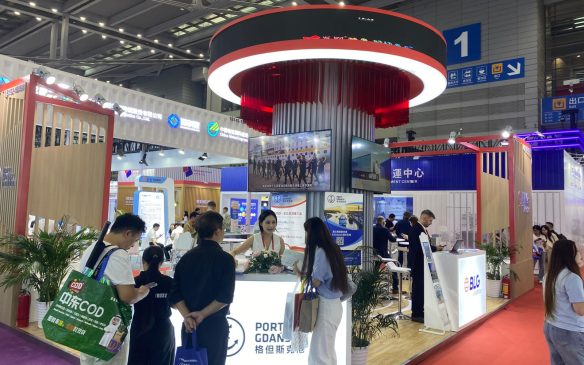Deputy Prime Minister at the Port of Gdańsk: the Baltic Sea is a key area for economic development and security

‘I am very impressed by the dynamic development of the Port of Gdańsk and its investment plans. The Baltic Sea is a key area not only for economic development, but also for ensuring the security of Poland and the Alliance’, said the Deputy Prime Minister and Minister of Foreign Affairs, Radosław Sikorski, during today’s press conference at the Port of Gdańsk.
The head of Polish diplomacy pointed out that critical infrastructure in Europe has become the target of increasing frequent attacks. ‘Underwater cables and pipelines are cut. Russia’s “shadow fleet” crosses the Baltic Sea, and finances the murderous war in Ukraine’, he noted.
The Deputy Prime Minister emphasised that Polish ports are of paramount importance both in supplying Ukraine and in delivering energy resources – oil, gas and coal – to Poland. ‘Economic successes, including the development of the port industry, spur the growth of the entire country, making Poland the 20th largest economy in the world today’.
Record investments in the maritime economy
Deputy Minister of Infrastructure, Arkadiusz Marchewka, who was present at the conference, announced that PLN 2.4 billion has been earmarked in next year’s budget for investments in the maritime economy, which represents an increase of over PLN 400 million compared to the previous year.
‘Ports have an ever-increasing role to play in ensuring not only economic security, but also food and energy security. That is why the development of the maritime infrastructure is one of the pillars of our budget policy’, said the Deputy Minister.
‘We have a number of investments underway at the Port of Gdańsk aimed at enhancing safety. A terminal for the installation of offshore wind farms is under construction here. Ships will soon be able to depart from this terminal to deliver large components for the construction of the PGE wind farm in the Baltic Sea. The investment is to be completed in the second half of next year, and Poland is going to gain over 20 hectares of land’.
And that’s not all. An FSRU-type floating gas terminal is under construction in the Gulf of Gdańsk. It is being built thanks to the involvement of Gaz-System. The construction of a grain terminal has also begun in the Port of Gdańsk, which should increase the cargo handling capacity by nearly 1 million tonnes by the end of next year. The following phases are to be completed by 2027 and 2028.
‘This is extremely important because the terminal is to be wholly owned by the State Treasury. The investment is being carried out by a company belonging to the Port of Gdańsk Authority’.
Port of Gdańsk sets cargo handling records
In 2024, Polish seaports saw record container handling figures, exceeding 3.27 million TEU, which is an increase of over 9% in comparison to the previous year.
The opening of the T3 terminal at Baltic Hub in the Port of Gdańsk is expected to ensure the dynamic growth of cargo handling volumes in the coming years.
Parallel investments, including the expansion of cargo handling terminals and the development of energy infrastructure, are expected to further strengthen Gdańsk’s position as a strategic logistics hub and a pillar of security in the Baltic Sea region.



